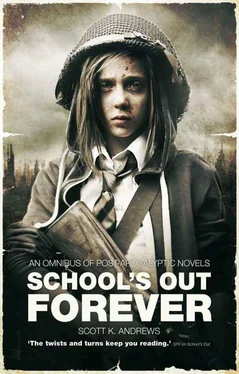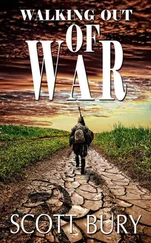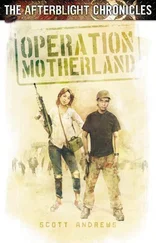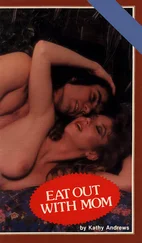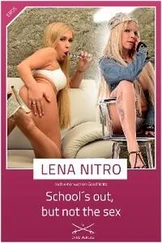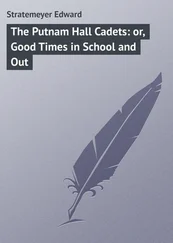“I will, but I think you’re worrying over nothing.” It’s a complete lie. Everything he’s just said I’ve been thinking too. If I could think of a way to keep Lee out of danger, I’d take it. He’s earned the break. But he’d be insulted and would insist on coming anyway so in the end it would probably do more harm than good. “Not exactly a crack squad of elite forces are we?” I say with a smile. “A one legged boy, a hook-handed man, a partially deaf limping potential headcase and a matron.”
He sits back and crosses his arms. “Took out the whole US Army didn’t we? I reckon a bunch of kidnappers won’t be too much trouble.”
But we both know it’s bravado.
“While I’ve got you alone, John,” I say hesitantly. “Are you… I mean… me and Lee… is it?”
“Not my business,” he says firmly. “He’s 18.”
“You don’t mind, though?”
“That’s irrelevant.”
“Not to me.”
He sighs heavily and his shoulders sag. For a moment the mask slips and I can see concern on his face. But it’s not an unfriendly look.
“Honestly?”
“Honestly.”
“All right then,” he says. “I think you’re gorgeous and clever and the best possible thing that could happen to my son right now.”
“I hate to say this again, but… but?”
And then he says something that in one fell swoop fucks me up more than I could have imagined possible.
“Jesus, Jane, you don’t half remind me of his mother when she was your age.”
He rises from his chair, puts a hand on my shoulder for a moment, then leaves.
I sit there for on my own a long, long time.
God, I could kill a cuppa.
I WORRY ABOUT the perishability of rubber.
We’ve got a huge great pallet of condoms that we lifted from an abandoned warehouse. I remember when we found them, back on a scavenging trip when Mac was still in charge. I insisted we bring them along. At first Lee got a bit embarrassed — he was fifteen, after all — and then a bit annoyed.
“Why the hell would we want them?” he asked me.
I told him he’d understand eventually. I think he thought I was making fun of him, but I was beginning to worry about a residential school full of teenage boys and girls and the difficulty of stopping them shagging like rabbits every time they were out of a teacher’s earshot.
Once I was in charge, I organised sex education classes and then made the condoms available to any child who wanted them. No age limit, no questions asked. Simply put, the alternative was lots of teenage mums. I may favour home births, birthing pools and all that jazz but if there are complications I’ve not got the kit to deal with them.
In post-Cull England, childbirth was once again almost certain to become a big killer of young women. I felt sure that sooner or later we’d hear of a communal birth centre being set up somewhere; it was inevitable. But until then, I wanted to keep pregnancies to a minimum, and sex ed. and free condoms seemed a pragmatic approach.
We’ve only had one unwanted pregnancy so far and thankfully the birth was textbook. Sharon from Bournemouth has a little boy called Josh and she’s not telling anyone who the father is, although everyone knows it’s a spotty little tyke called Adrian.
This baby did something I’d not expected. It drew us all closer together, unified the school. Josh somehow became communal property, raised not by Sharon, although I ensured she remained primary carer, but by the school as a whole.
The first time he crawled was during breakfast. He took off down the aisle between the tables to a huge round of applause and cheers from the assembled kids. Clearly, he’s meant for the stage.
It was a special moment.
As the common room fills up for the evening’s DVD I think of Josh and the effect he’s had on us. What would the school do if he were taken? I don’t mean if he died. It would be awful, but we’re all familiar with death by now, and another reality of post-Cull England was that infant mortality was going to soar to… well, to the kind of levels seen in pre-Cull Africa. Death happens, you get over it, you move on.
I mean if he was snatched, spirited away, never to be seen again. It doesn’t bear thinking about.
I dwell on this for two reasons.
Most importantly because the sell-by date on the condoms has just expired.
But more immediately, because children like Josh have been disappearing from homes and villages across the South-East for the last year or so. At first only a few, then more and more frequently and, after the incident at High Rocks, more violently. Someone is running an organised kidnapping ring and it’s kids they’re after. Chances are they’ll eventually come for St Mark’s.
I’m not a mother yet, I may never be. But these kids are all mine, in a way. And if someone’s going to come and try to take them away at gunpoint, I’m going to stop them, or die trying.
Protecting them means leaving the school grounds, taking the fight to our as yet anonymous enemy. I’ve not left the grounds since I arrived here in a wheelchair, broken and battered after my time with the American Army. I don’t want to leave. I have a kind of agoraphobia, I suppose. This is my home, my community, and the thought of leaving terrifies me. What if I inadvertently lead the enemy straight here? What if I have to watch Lee, or any of the others, die? I’m not a soldier, I never wanted to be a soldier, but that’s what The Cull made of all of us. I’ve spent the last two peaceful years trying to pretend that my fighting days were behind me. But I was lying to myself.
I start the DVD then I head upstairs to strip and oil my guns.

CHAPTER TWO
THE GUN FELT weird; a mix of familiarity and fear.
I settled into my position, feeling the early winter cold seeping up through my trousers from the damp carpet on the floor of the front bedroom. My gun-shot legs would ache all day after this, like an arthritic pensioner.
I rested my arms on the window sill of the old terraced house, carefully avoiding the few shards of broken glass still sticking up from the crumbling putty, and nestled the stock of the L115A3 sniper rifle in my shoulder, sighting down the barrel.
I’d taken it down the firing range a couple of weeks before, when I’d realised that a fight was inevitable. It had only taken me an hour or so to master it. My skills had not deserted me. It was the same weight as the L96 I had taken from the sniper who’d used it to put a bullet in my left leg four years earlier, but it had a silencer, a better sight, and it fired a higher calibre round — 8.59mm rather than the L96’s 7.62mm. Basically, it made it much easier to hit the target, gave a near 100% certainty of killing them if I did, and a much greater chance of staying undetected after taking the shot. It felt like an extension of me, but one that I was not sure I was comfortable with, like how I supposed Tariq must feel about his hook.
I couldn’t tell you whether it was fear, cold or anticipation that made my hands shake.
The pre-dawn darkness meant I would be invisible to the two men unless they were to turn their binoculars straight at me and, by some chance, pause to study the dark window for a moment. But right now they were pre-occupied with the strangers who’d just turned up on their doorstep unannounced and offered them five captive children. For the right price, natch.
“Do you have a preference?” I asked softly.
“Nah,” replied Tariq, from the window to my right.
“I’ll take the one with the beard, then.”
“Okay.”
It had been two years since I’d held a weapon with intent to kill. It hadn’t been a conscious decision to avoid guns, but after Salisbury I’d spent so many months recuperating — learning to walk, to use my arms, to talk again — that target practice had been the last thing on my mind. Two years of nobody shooting at us had helped, too. But if I’m honest, I was wary of the things. I knew that my behaviour during and after Iraq had been erratic. I knew that Tariq was concerned about the risks I had taken, and those I might take again.
Читать дальше
